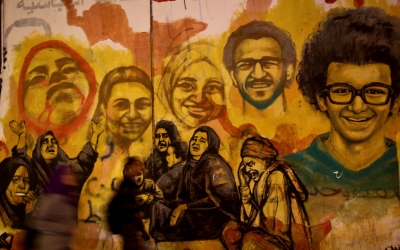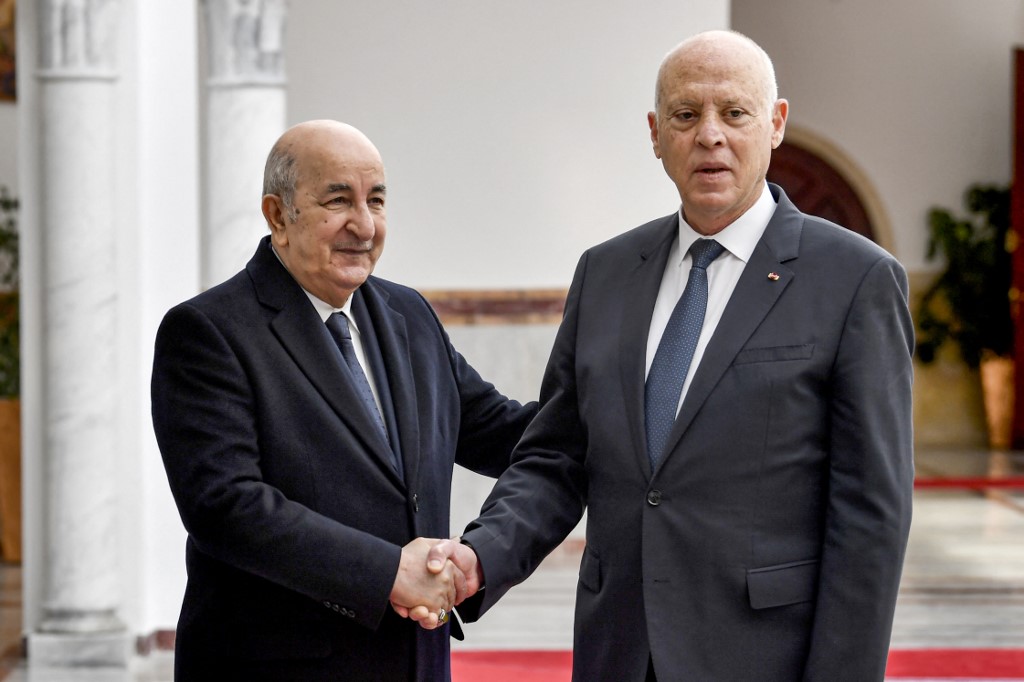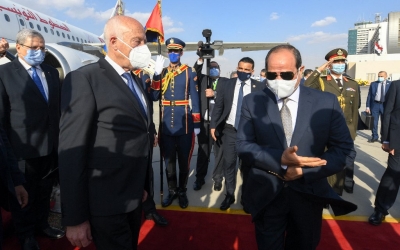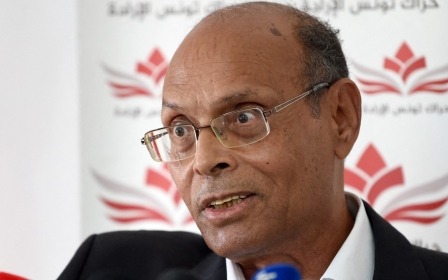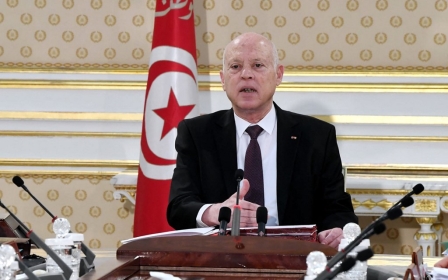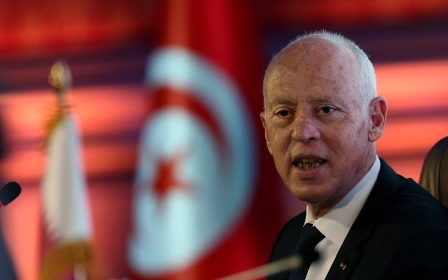Why Tunisia's future is looking more uncertain than ever
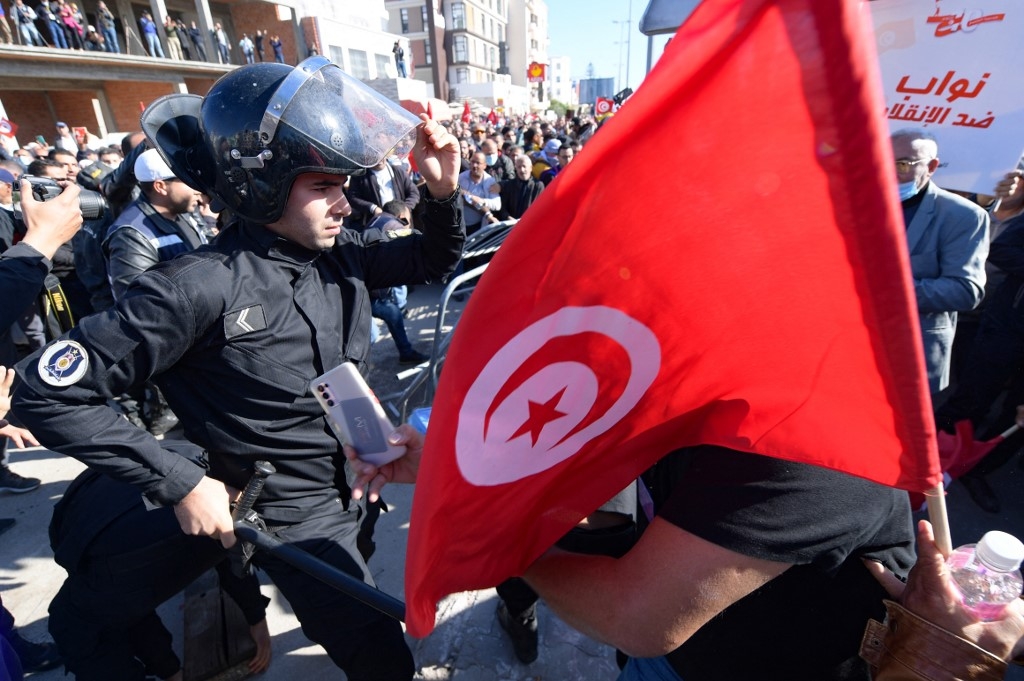
The official gazette published by the Tunisian state announced on 7 December that the annual commemoration of the Tunisian revolution would be moved from 14 January - the day longstanding autocrat Zine el Abidine Ben Ali was ousted - to 17 December - the day the young street vendor Mohamed Bouazizi set himself on fire.
It had been a subject of debate for some time among prominent and ordinary Tunisian citizens alike. Every year, government offices and businesses in Sidi Bouzid observe a public holiday on 17 December in homage to Bouazizi, a native of the province, whereas elsewhere in Tunisia 14 January marks the start of the revolution.
A carefully worded compromise in the preamble of Tunisia's constitution of 2014 - "the revolution of 17 December 2010 through to 14 January 2011" - was meant to reconcile the opposing factions while celebrating the popular protest movement that toppled the country's autocratic regime.
But for Tunisian President Kais Saied, who on 25 July seized sweeping executive powers and announced he could rule by decree, the quarrel over dates is by no means trivial. On the contrary, it is crucial to his ideology and political programme.
According to the new one-man ruler of Tunisia, the revolution - meaning the popular uprising - was sparked by the gesture of a street vendor but hijacked by the politicians, in the name of the so-called democratic transition, the minute Tunisia's former president fled to Saudi Arabia.
A 'dark decade'
On 13 December 2021, the country's new strong man called the 10-year period from 2011 to 2021 a "dark decade" that had brought the government to its knees and that represented an "imminent threat” - one justifying, naturally, the announced period of exceptional measures.
In a nutshell, the 25 July power grab is a way for Saied to make a clean break with everything that has happened since 14 January 2011.
The quarrel over the date marking the start of the revolution is a tell-tale sign of the confrontation between greater economic and social equality, on the one hand, and political freedoms, on the other
And what has happened is neither the global health crisis that has paralysed Tunisia's hospitals, nor the political disputes over the distribution of power between president, prime minister and parliament, let alone the results of the 2019 presidential elections. It is the entire political system erected since the ousting of Ben Ali that Saied says has failed.
His announced road map out of the crisis inevitably includes a new constitution, a new parliament and new governing institutions. The president alone will remain in place - though he himself is a product of the political system instituted after the revolution - and no new elections will be held.
The quarrel over the date marking the start of the revolution is a tell-tale sign of the confrontation between greater economic and social equality, on the one hand, and political freedoms, on the other.
The revolution emerged from demands for greater social equality. Its founding narrative was built around the problem of finding work in Tunisia: Bouazizi was forced to sell fruit and vegetables to support himself despite holding a graduate degree.
But questions of public freedoms, weakened by a string of corrupt and autocratic regimes, were soon raised. In the decade following the revolution, successive governments prioritising institutional reform over economic and social issues would see the emergence of parties demanding the situation be reversed, even if political freedoms and democracy were sacrificed in the process.
A dwindling support
Ironically, the discourse has served the interests of a third faction - and the call for a new authoritarian project for the country. In short, the demonisation of the entire post-revolutionary decade is tantamount to tossing the baby - of democratic progress and reform - out with the bathwater.
In the aftermath of 25 July 2021, large swaths of the ruling class, the media and civil society considered, to some degree, the president's radical approach as a necessary ill to prevent the country from spiralling into even greater chaos.
But other than a few political parties with little or no electoral weight, support for Saied's project is dwindling.
The distribution of power, one of the main achievements of the revolution, is in danger of being destroyed
The powerful and formerly pro-Saied trade union federation, UGTT, is openly opposed today to the self-styled strongman president. And the feeling is mutual. However, prominent figures who were close to the ousted Ben Ali, such as former minister and regime loyalist Sadok Chaabane, have shown enthusiastic support for the new ruler of Carthage.
Since declaring the state of emergency, Saied has gone about dismantling the system of checks and balances, building on a small number of established facts to discredit an entire governing body. Parliament and the Anti-Corruption Authority have paid a heavy toll, and the Higher Electoral Authority (ISIE) and the Supreme Council of the Judiciary and local authorities have come under fire as well.
The distribution of power, one of the main achievements of the revolution, is in danger of being destroyed. The executive branch risks seeing its power eroded, election supervision risks being handed back over to the minister of the interior, and the independent judiciary could fall once more under government control.
Freedom of expression, up to now hailed as the revolution's greatest advancement, is also under threat.
Troubling exceptions
Though free speech has remained largely unrestricted up until now, there have been several troubling indications that this could change. For one thing, Saied refuses to answer questions from the local press, contenting himself with posting videos on the executive's official Facebook page.
Furthermore, during Palestinian President Mahmoud Abbas's visit to Tunisia, a press conference was organised without a single journalist attending. On the occasion of the visit of Algerian President Abdelmadjid Tebboune, only journalists working for national television and press were invited, with the stipulation that they should not address any questions to the Tunisian president.
Thus far, there have been no major socio-economic policy overhauls. Despite the nationalist overtones of the official Tunisian discourse, discussions with the International Monetary Fund are still underway.
In July 2020, Saied enacted a controversial public sector recruitment bill, backed by the parliament against the advice of then prime minister Elyes Fakhfakh, opening the door to hiring university graduates who have been out of work for more than 10 years.
After granting himself full powers, however, he changed his mind, deeming the law to be unenforceable. The ensuing protest movement in Agareb was quashed with tear gas, and illegal immigration attempts from Tunisia have accelerated.
And so, 11 years after the 17 December 2011 revolution, the future of Tunisia is looking more uncertain than ever. With the dominant political parties having disappointed many, and a president increasingly prone to authoritarianism, the Tunisian democratic experiment risks being consigned to a footnote in history.
The opinions expressed in this article are those of the author and do not necessarily reflect the editorial policy of Middle East Eye.
This piece has been translated from the MEE French edition.
Middle East Eye propose une couverture et une analyse indépendantes et incomparables du Moyen-Orient, de l’Afrique du Nord et d’autres régions du monde. Pour en savoir plus sur la reprise de ce contenu et les frais qui s’appliquent, veuillez remplir ce formulaire [en anglais]. Pour en savoir plus sur MEE, cliquez ici [en anglais].



